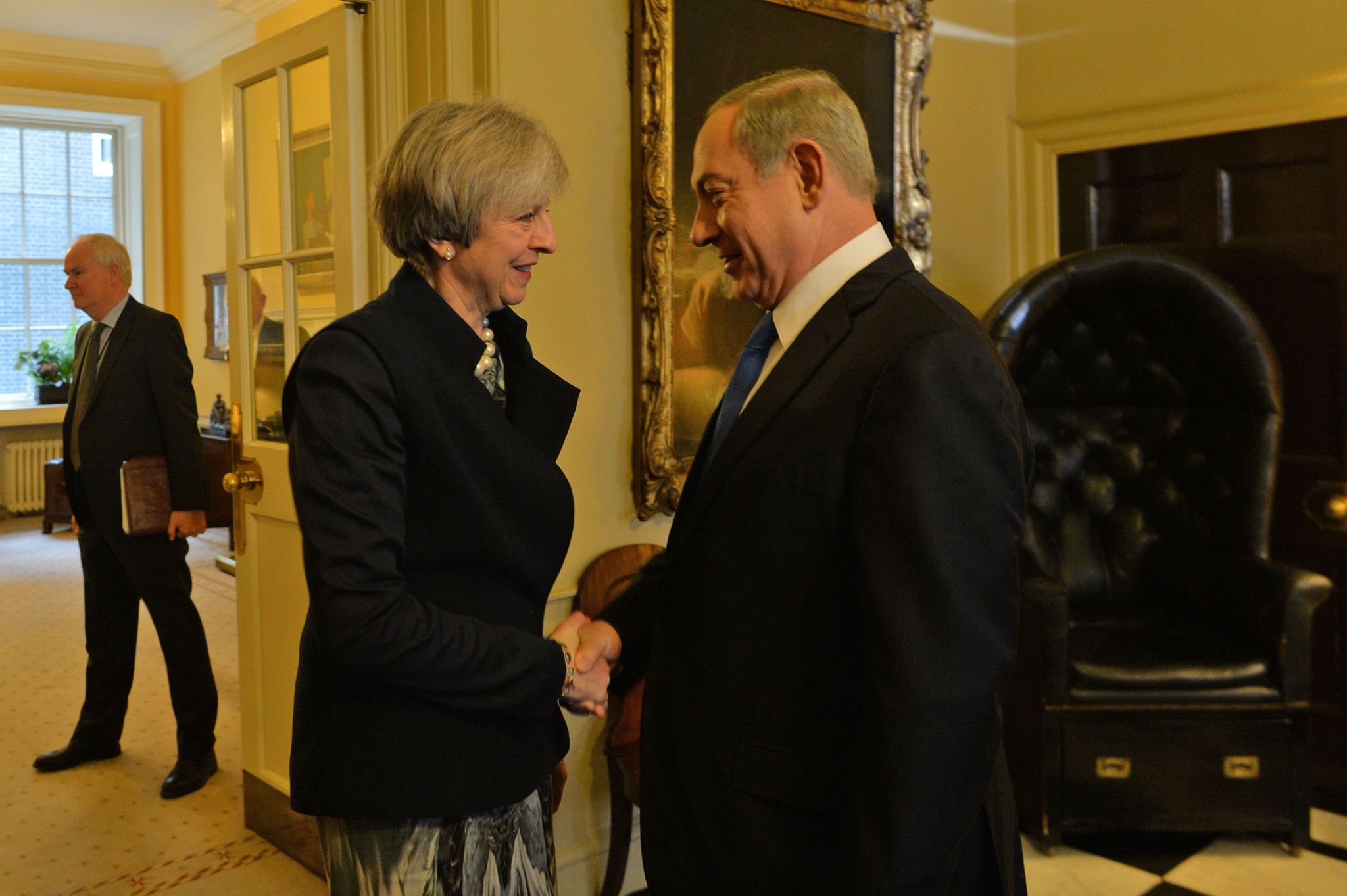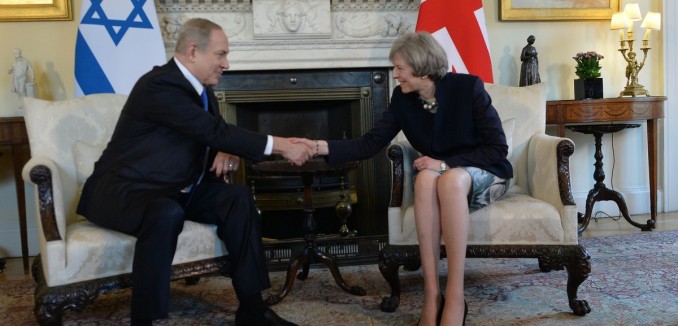Israeli Prime Minister Benjamin Netanyahu met with British Prime Minister Theresa May on Monday in London, where the two leaders spoke of ways to enhance bilateral ties and address mutual threats.
At the start of his meeting with May, Netanyahu—who said he has a photo of Winston Churchill near one of Theodor Herzl in his office—praised their two nations’ “commitment to the values of freedom and our common civilization.”
He also hailed British-Israeli cooperation in trade, technology and security, and expressed his desire “to discuss how we can strengthen that cooperation to make our people still safer and still more prosperous.”
The UK, Israel’s second-largest export market after the U.S., sent $3.7 billion in goods to Israel in 2016 and imported approximately that much as well, according to Israel’s Central Bureau of Statistics. The Jewish state is the UK’s fourth largest market in the Middle East.
Netanyahu further pointed to joint challenges that the UK and Israel face “from militant Islam and especially from Iran.”
 “Iran seeks to annihilate Israel,” Netanyahu stressed. “It says so openly. It seeks to conquer the Middle East. It threatens Europe; it threatens the West; it threatens the world. And it offers provocation after provocation. That’s why I welcome President Trump’s insistence on new sanctions against Iran. I think other nations should follow suit, certainly responsible nations. And I’d like to talk to you on how we can ensure that Iran’s aggression does not go unanswered.”
“Iran seeks to annihilate Israel,” Netanyahu stressed. “It says so openly. It seeks to conquer the Middle East. It threatens Europe; it threatens the West; it threatens the world. And it offers provocation after provocation. That’s why I welcome President Trump’s insistence on new sanctions against Iran. I think other nations should follow suit, certainly responsible nations. And I’d like to talk to you on how we can ensure that Iran’s aggression does not go unanswered.”
A spokesperson for May said during a press briefing on Monday, “We share concerns about that test. It was discussed at the UN and we made clear our position.”
The spokesperson added that while it is important that the nuclear deal with Iran “is very carefully and rigorously policed,” the British government believes that it has neutralized Iran’s ability to acquire nuclear weapons “for more than a decade.” (Former President Barack Obama acknowledged in 2015 that by “Year 13, 14, 15” of the deal, Iran’s breakout time would be “almost down to zero.”)
Netanyahu also assured May “that we share with you the desire for peace and this is our dream from day one. And we will never give up on our quest for peace with all of our neighbors.”
In her opening remarks, May reiterated the UK’s support for a two-state solution between Israel and the Palestinians “as the best way of brokering stability and peace.”
She also expressed her desire to discuss “some issues around the region, Syria and Iran and the whole question of the future of the Middle East,” called the UK a “strong and close friend of Israel,” and echoed Netanyahu’s call to find ways to further “build that relationship.”
Speaking at the Gulf Cooperation Council summit in December, May said she was “clear-eyed about the threat that Iran poses to the Gulf and the wider Middle East.” She emphasized her nation’s commitment to countering Iranian aggression, “whether in Lebanon, Iraq, Yemen, Syria, or in the Gulf itself.”
Days later, in an address to the Conservative Friends of Israel group, May called Israel “a thriving democracy, a beacon of tolerance, an engine of enterprise and an example to the rest of the world for overcoming adversity and defying disadvantages.”
Downing Street declined to send a high-ranking delegation to a French conference on the Israeli-Palestinian conflict last month, expressing “reservations” over the event and noting that it took place “against the wishes of the Israelis.” The British delegation refused to sign the closing statement from the Paris conference, and then prevented the European Union’s Foreign Affairs Council from adopting it.
Earlier in January, May issued what many observers called an “unprecedented” public rebuke of then-U.S. Secretary of State John Kerry after his speech about Israeli-Palestinian peace, with a spokesman saying that the UK “do[es] not believe that it is appropriate to attack the composition of the democratically-elected government of an ally.” The move came days after the UK voted in favor of United Nations Security Council resolution 2334, which criticized Israeli activity in the West Bank and eastern Jerusalem. Israeli diplomats have said that the UK played a key role in brokering that resolution.
[Photo: Kobi Gideon / GPO]




